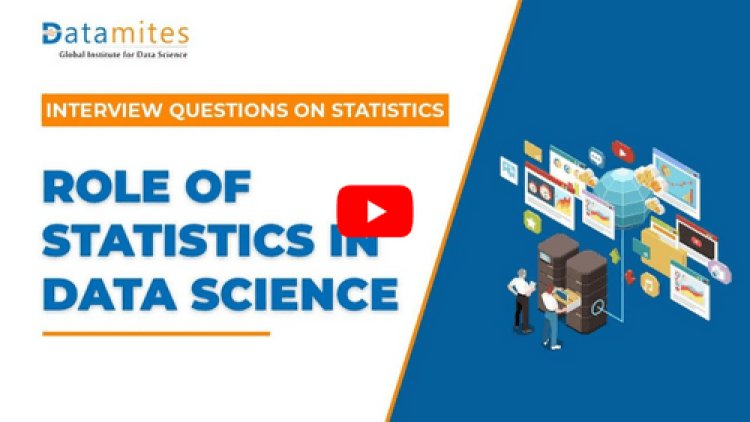How to Become a Data Analyst in Switzerland?

To become a data analyst in Switzerland, there are certain steps you can follow. Switzerland offers a thriving job market in the field of data analysis, with a strong focus on industries such as finance, healthcare, and technology. A solid educational foundation in mathematics, statistics, or a related field is essential. It is beneficial to gain proficiency in data analysis tools and programming languages such as Python, R, SQL, and Tableau. Acquiring practical experience through internships or projects can enhance your skills and provide valuable industry exposure. Additionally, staying updated with the latest trends and advancements in data analytics is important. Switzerland also values certifications, so obtaining relevant certifications in data analysis can boost your chances of securing a data analyst role in the country.
What is Data Analytics?
Data analytics involves the systematic exploration, conversion, and interpretation of extensive amounts of data to discover valuable insights, detect recurring patterns, and identify emerging trends. It involves using various statistical and analytical techniques to extract valuable information from structured and unstructured data. Data analytics encompasses the entire data lifecycle, including data collection, data cleansing, data transformation, data modeling, data visualization, and data interpretation.
The data analytics market is projected to achieve a significant milestone by 2030, with a predicted size of USD 329.8 Billion. This growth is anticipated to be driven by a robust compound annual growth rate (CAGR) of 29.9%, according to a report by Acumen Research and Consulting. The primary goal of data analytics is to make informed business decisions, solve complex problems, and gain a deeper understanding of patterns and trends within the data.
Data analytics is a multidisciplinary field that combines statistics, mathematics, computer science, and domain expertise to extract meaningful insights from data, driving informed decision-making and enabling organizations to gain a competitive advantage in today’s data-driven world. Explore data analytics courses in Switzerland to enhance your skills and expertise in this dynamic field.
Why a Data Analytics career in Switzerland?
A Data Analytics Career in Switzerland offers several advantages, particularly when considering salary prospects. Switzerland is known for its high standard of living and competitive wages, making it an attractive destination for professionals in various industries, including data analytics.
The data analyst’s salary in Switzerland ranges from CHF 95,000 per year according to a Glassdoor report. Swiss companies place a significant emphasis on data-driven decision-making and are willing to invest in skilled data analysts who can extract meaningful insights from vast amounts of data.
In addition to attractive salaries, Switzerland offers excellent working conditions, generous benefits, and a high level of job security. The country boasts a robust infrastructure, advanced technology, and a favorable business environment, providing data analysts with the necessary tools and resources to excel in their roles.
Read the following articles:
- Data Analytics for the E-commerce Sector
- Data Analytics in Retail Industries
- Data Analytics in Business
Why is Data Analytics in demand in Switzerland?
Data analytics is in high demand in Switzerland across various industries due to several key factors. Let’s explore the significance of data analytics in the education, retail, finance, healthcare, and manufacturing sectors:
Education Industry:
Data analytics in Zurich plays a pivotal role in the education sector in Switzerland. Educational institutions are harnessing data analytics to improve student outcomes, enhance teaching methodologies, optimize administrative processes, and make data-driven decisions for overall educational quality.
Retail Industry:
The retail sector in Switzerland recognizes the value of data analytics in understanding consumer behaviour and optimizing business operations. By analyzing customer data, such as purchase history, preferences, and demographics, retailers can gain insights into consumer trends, tailor marketing strategies, optimize inventory management, and improve supply chain efficiency.
Finance Industry:
Switzerland is renowned as a global financial hub, and the finance industry relies heavily on data analytics to drive decision-making processes. Financial institutions use data analytics to detect fraudulent activities, assess credit risks, optimize investment portfolios, and improve customer service. The ability to analyze vast volumes of financial data allows organizations to make more accurate predictions, identify market trends, and develop effective risk management strategies, ensuring regulatory compliance and maintaining a competitive edge.
Healthcare Industry:
Data analytics is revolutionizing the healthcare industry in Switzerland by improving patient care, optimizing operational efficiency, and enhancing medical research. By analyzing patient data, medical professionals can identify patterns, predict diseases, and personalize treatment plans. Data analytics also facilitates proactive health monitoring, early disease detection, and efficient resource allocation.
Manufacturing Industry:
In the manufacturing sector, data analytics empowers organizations to optimize production processes, reduce costs, and enhance product quality. Swiss manufacturers use data analytics to monitor equipment performance, detect anomalies, and implement predictive maintenance strategies, reducing downtime and increasing productivity.
Overall, the demand for data analytics in Switzerland’s education, retail, finance, healthcare, and manufacturing industries stems from the benefits it offers in terms of operational efficiency, improved decision-making, enhanced customer experiences, and staying competitive in an increasingly data-driven world.
How to Become a Data Analyst in Switzerland?
You can follow these standard procedures to become a data analyst in Switzerland:
- Obtain a Relevant Education: A bachelor’s or master’s degree in a field such as statistics, mathematics, economics, computer science, or data science is typically required. It provides you with a solid foundation in analytical skills and techniques.
- Gain Knowledge in Data Analysis Tools and Software: Familiarize yourself with popular data analysis tools and software such as Python, R, SQL, Excel, Tableau, or Power BI. These tools are commonly used in the industry and can help you analyze and visualize data effectively.
- Build a Strong Analytical Skill Set: Develop your analytical skills by gaining experience in data manipulation, statistical analysis, data visualization, and data modeling. Undertake projects or work on datasets to practice applying your knowledge and skills.
- Gain Practical Experience: Seek internships, part-time jobs, or freelance projects where you can apply your data analysis skills. Real-world experience is valuable and can enhance your understanding of working with data in different contexts.
- Live-project Internship: Engaging in live project internships provides data analytics professionals with invaluable practical experience in real-world scenarios. By actively participating in these projects, interns can effectively apply their knowledge and skills to tackle genuine data challenges faced by organizations, including opportunities available in data analytics in Basel.
- Certifications: Consider obtaining relevant data analytics certification in Switzerland to demonstrate your proficiency in data analysis. Certifications like the Certified Analytics Professional (CAP) or the Microsoft Certified: Data Analyst Associate can provide credibility and validate your skills.
- Communication Skills: Effective communication is crucial for a data analyst, as you will often be required to present your findings and insights to non-technical stakeholders. Work on improving your ability to explain complex concepts in a clear and concise manner.
- Explore Job Opportunities: Search for data analyst positions in Switzerland through online job portals, company websites, and professional networks. Make sure to emphasize your relevant abilities and experiences in both your CV and cover letter.
- Prepare for Interviews: Study the business and the position for which you are applying. Be prepared to answer technical questions about data analysis concepts, tools, and methodologies. Additionally, demonstrate your problem-solving abilities and highlight your past achievements.
Remember, the specific requirements and preferences may vary depending on the company and industry. Stay up-to-date with the latest trends in data analysis and continue to enhance your skills throughout your career to remain competitive in the field.
Refer the following articles:
- Become a Data Analyst in Malaysia
- Become a Data Analyst in United States
- Become a Data Analyst in Canada
How is DataMites providing Certified Data Analyst Course in Switzerland?
DataMites, a renowned global training institute, offers top-notch Data Analytics Training in Switzerland along with other trending courses like artificial intelligence, deep learning, data science, data engineer, Python, MLOps etc. Among its exceptional courses, the Certified Data Analyst Course in Switzerland stands out as one of its finest offerings. They may provide their courses through different modes such as:
- Ashok Veda and faculty: DataMites is privileged to have Ashok Veda, a distinguished AI expert, as part of their team, where he brings his extensive experience in analytics and data science. With an impressive career spanning 19 years in finance, healthcare, and technology, Ashok Veda has consistently delivered exceptional results and fostered an environment of innovation. As a highly respected faculty member at DataMites, he leads cutting-edge projects that harness advanced AI techniques to extract valuable insights and tackle complex business challenges.
- Industry-relevant Tools: DataMites ensures that its students are well-equipped with industry-relevant tools through various channels. This includes providing access to licensed software and widely utilized tools such as Excel, SQL, Tableau, Power BI, and more. Additionally, practical exercises and real-world projects are integrated into the curriculum, allowing students to apply these tools and develop practical experience and expertise. By combining tool accessibility with practical applications, DataMites guarantees that students acquire the necessary tools and skills demanded by the industry.
- Project and Internship Opportunities: DataMites offers students invaluable opportunities to participate in projects and internships, enabling them to gain practical experience and apply their skills in real-world scenarios. Engaging in hands-on activities and tackling industry-specific challenges during these experiences enhances their understanding of data analytics. Through active participation in practical projects, students at DataMites actively develop their comprehension of data analytics while overcoming industry-specific obstacles.
- Course Curriculum: DataMites develops a comprehensive curriculum that encompasses crucial topics and skills necessary for effective data analysis. The curriculum covers a wide range of areas, including statistics, data cleaning and preprocessing, data visualization, exploratory data analysis, predictive modeling, machine learning, and other relevant subjects.
- Hands-on Projects: DataMites recognizes the importance of practical application in data analysis training. As part of their program, they offer hands-on projects and case studies that enable students to apply their knowledge to real-world scenarios. These practical assignments serve to enhance their analytical skills and help them build a portfolio of work that effectively demonstrates their abilities.
- Certification: DataMites offer globally recognised IABAC certification to students upon the successful completion of the course requirements. This certification serves as a validation of the skills and knowledge acquired during the training, enhancing job prospects and bolstering professional credibility for the individuals who obtain it.
- Affordable fees: DataMites ensures that their data analytics courses are affordable, making quality education in this field accessible to a wide range of individuals. They offer cost-effective options that maintain high-quality content and provide a valuable learning experience, without any compromise. The Certified Data Analyst Training Course Fee in Switzerland varies from CHF 769 to CHF 1470, offering students a selection of affordable alternatives.
- Online Training: DataMites offer Online Data Analytics Training in Switzerland through virtual platforms. Flexible learning is made possible by the ability of students to access lectures, assignments, and course materials online.
To obtain the most accurate and up-to-date information about DataMites offerings in Switzerland, I recommend visiting their official website or contacting their customer support directly. They will be able to provide you with detailed information on their current courses, schedules, and locations.
Certified Data Analyst Course

Summary
To become a data analyst in Switzerland, there are several key steps to consider. First, acquire a strong foundation in mathematics, statistics, and programming languages such as Python or R. Next, pursue a bachelor’s or master’s degree in a relevant field like data science, computer science, or statistics. Additionally, gaining practical experience through internships or projects can greatly enhance your skills and employability. It is also beneficial to develop a strong understanding of data visualization, machine learning, and database management. Finally, consider obtaining certifications like those offered by reputable organizations or completing specialized data analytics courses to further validate your skills. Networking, staying updated with industry trends, and showcasing your portfolio can also help in securing data analyst positions in Switzerland.
Read the following articles:
- Become a Data Analyst in South Africa
- Become a Data Analyst in Singapore
- Become a Data Analyst in Australia
Data Analyst vs Data Engineer

Role of Statistics in Data Science

